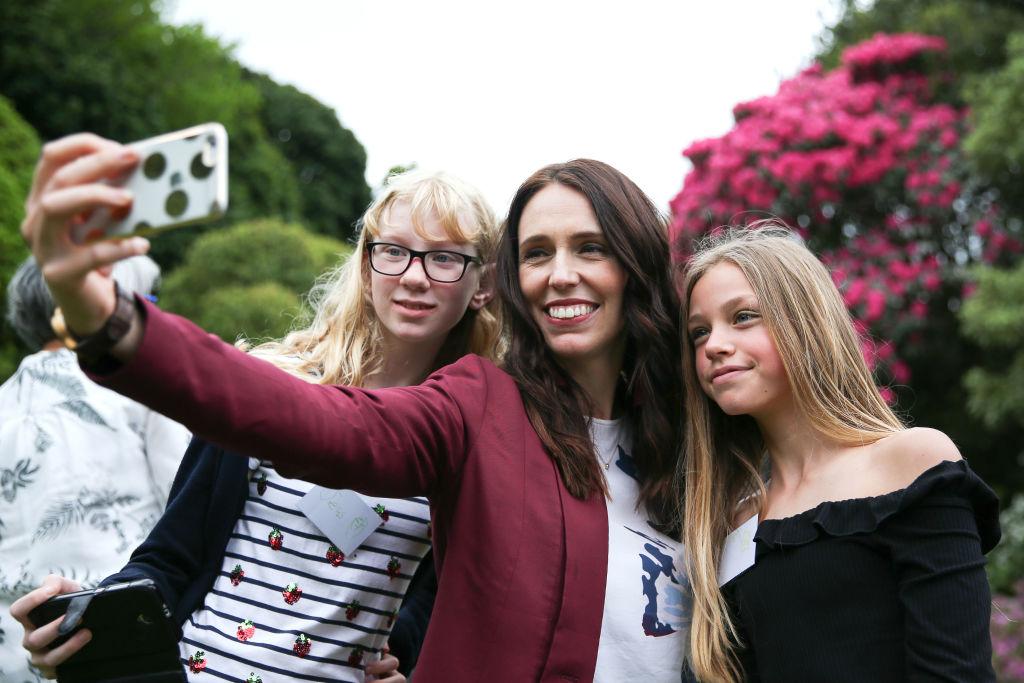
As New Zealanders head to the polls, Prime Minister Jacinda Ardern and the Labour Party are in a good position to be able to form government in their own right after three years in a coalition with New Zealand First. A substantial part of Labour’s support is likely to come from young people. Before the last election in 2017, 52% of those aged 18–34 voted or intended to vote for Labour and 47% of 25–34-year-olds also supported the party.
The power of the ‘youth vote’ is frequently discussed, but, more often than not, it is also underestimated. There’s a growing number of young voters enrolled around the world. In Australia, young voters rushed to enrol to vote in the same-sex marriage plebiscite in 2017. That pushed Australia’s enrolment rate at the 2019 election to a historic high of 96.8%. In the US, people under the age of 40 comprise almost 40% of eligible voters. In the UK, before the 2019 election, more than 1.5 million people under the age of 34 had enrolled to vote, up from 1.2 million prior to the 2017 election.
Despite this, youth voter turnout often falls short of expectations. Young people no doubt care about political issues, but there’s a strong sense of disillusionment with, and disengagement from, traditional politics and traditional politicians who seem unconcerned with the issues young people care most about. This, along with a perception that their votes won’t make a difference, seems to limit the number of young voters who show up on election day.
But this doesn’t appear to be entirely the case in New Zealand. The Labour government led by Ardern seems to have been more successful in appealing to young people and encouraging them to participate in the electoral process in greater numbers.
When Ardern assumed the leadership of the Labour Party in 2017 at age 37, just two months before becoming New Zealand’s youngest prime minister in 150 years, the country was gripped by ‘Jacindamania’. Young people in particular seemed inspired by Ardern, who adopted an ‘unrelentingly positive’ campaign style, coupled with a platform including a plan to implement three years of free tertiary education by 2024. This, as well as a perception that she communicated with young people, rather than just talked about them, resulted in an increase in voter turnout among New Zealanders aged 18 to 29, a 6.5% jump from the 2014 election.
The emergence of a young, female political leader has done a lot to reinvigorate New Zealand’s domestic politics. Ardern has recast the mould of what it means to be a politician. She has employed empathy and effective communication to provide the leadership necessary to bring her country through the Christchurch terror attack and the Covid-19 pandemic. Her ability to communicate in a relatable manner, particularly via social media during the pandemic and throughout the election campaign, has driven engagement with her messages and motivated ‘perceptions of authenticity and expertise’.
But Ardern’s appeal for young people goes beyond the mere fact of her being young, female and an effective communicator. Despite her history as a career politician, she has committed to doing politics and implementing policies differently.
In stark contrast to the strongman politics on display in other parts of the world, Ardern has demonstrated an ability to be both empathetic and decisive in delivering effective leadership in New Zealand’s Covid-19 response. Despite stringent lockdown measures and the heavy impact of the pandemic on young people— in terms of both employment and mental health—Ardern’s leadership has been viewed as successfully uniting the country and has garnered global recognition. Her encouragement of New Zealand’s ‘team of five million’ to accept tough lockdowns and her willingness to take a pay cut herself as others have been hard hit, stands out among global responses to the pandemic.
Ardern’s ‘wellbeing budget’ is another good example of how Labour has done things differently, reconceptualising how to measure the economic success of the country and focusing on improving people’s quality of life over the long term. While it maintains elements like debt and budget targets, the wellbeing budget aims to provide greater consideration of factors beyond GDP growth, to include measures for supporting sustainable and low-emissions growth, providing skills and opportunities to New Zealanders, and supporting mental health.
This long-term and forward-looking policy agenda no doubt resonates with young voters concerned with inequality and their economic future. New Zealand’s 2020 budget focuses on job creation, with initiatives targeted at young people such as a trades and apprenticeship package, support for employment services and a new hardship fund for students.
Labour’s climate policies also reflect the concerns of young people and the priority they place on action to tackle climate change. A zero-emissions target, as well as a commitment to apply a ‘climate change lens’ to all government decisions, makes clear that the government understands that climate change is a critical issue with wide-ranging effects, and that it’s serious about taking action.
Those looking for an effective model for promoting youth voter engagement could learn much from New Zealand’s example. Refreshing and non-traditional politicians have an advantage, but employing effective communication strategies and enacting policies that are responsive to the needs and concerns of young people are key. Young people want to see that their vote matters and that it can lead to tangible change that benefits them and the society they live in.
While Ardern has provided a new face and a new approach to New Zealand politics, hard work will be needed to advance Labour’s policy agenda should the party win another term. The Covid-19-induced recession will no doubt pose a challenge to delivering on Ardern’s and Labour’s promises of ‘transformational change’ for New Zealand.